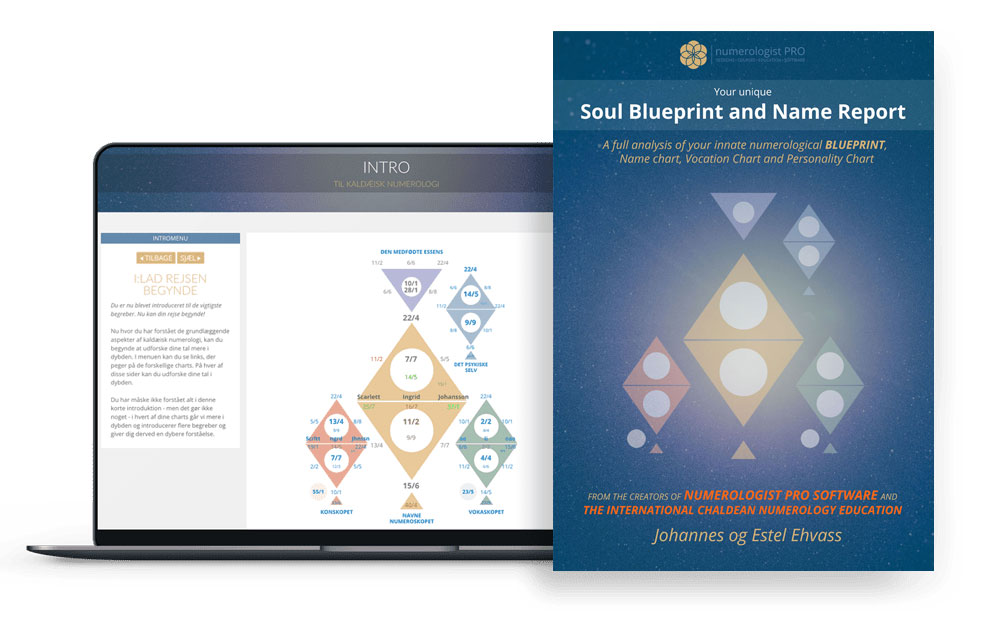Modern Controversies and Astrology

Johannes Ehvass
Welcome, dear reader! The Enlightenment, often hailed as the Age of Reason, ushered in an era where logic and empirical evidence reigned supreme. As society championed scientific discovery and rational thought, astrology faced a unique challenge. Positioned at the intersection of ancient beliefs and emerging skepticism, the celestial practice found itself both critiqued and revisited. Yet, even amidst this intellectual revolution, the allure of the stars persisted, reflecting the enduring human desire to find meaning beyond the tangible. Join me as we explore this dynamic period, where astrology navigated the delicate balance between tradition and transformation.
The Age of Skepticism: Debates and Controversies
Introduction: The Rise of the Skeptical Movement
From the Enlightenment to the Present

The seeds of skepticism can be traced back to the Enlightenment era. However, the latter half of the 20th century witnessed a significant rise in the skeptical movement, challenging many age-old beliefs, including astrology.
The New Wave of Critical Thinking
As the world became more scientifically inclined, critical thinkers began to demand evidence-based reasoning for beliefs. This wave of thought began to question many traditions, including the ancient practice of astrology.
Astrology’s Position in Modern Thought
The Mainstream Perspective
For many in the mainstream, especially the scientific community, astrology has been viewed with skepticism. Its classification as a pseudoscience, primarily due to its non-empirical nature, has led to its marginalization in academic discussions.
Popular Culture’s Love-Hate Relationship with Astrology
While academics may scoff at astrology, its prevalence in popular culture is undeniable. From daily horoscopes in newspapers to zodiac-themed merchandise, the public’s fascination contrasts starkly with academic skepticism.
The Major Points of Contention
Precession of the Equinoxes
One of the main scientific critiques revolves around the precession of the equinoxes. Skeptics point out that the zodiac signs, as used in Western astrology, no longer align with the constellations they were originally based upon.
The Forer Effect
Skeptics often cite the Forer effect (or Barnum effect) when criticizing astrology. This psychological phenomenon explains how individuals believe vague, general statements about personality to be highly accurate for them personally, a claim frequently levied against astrological readings.
Lack of Empirical Evidence
Many skeptics demand empirical evidence that proves astrological claims. The inability to provide this evidence under controlled conditions has been a major point of contention.
The Media and Astrological Skepticism
James Randi and the “Astrology Challenge”
Prominent skeptic James Randi, through his educational foundation, once offered a million-dollar prize to anyone who could prove astrological claims under controlled experiments. While many tried, none succeeded to his criteria.
Astrology in the Age of Reality TV
Several reality TV programs have pitted astrologers against skeptics, attempting to test the validity of astrological readings in front of mass audiences. These often sensationalized portrayals have further fueled the debates.
The Impact of Skepticism on Astrological Practice
Push for Reform in Astrological Practices
The skeptical movement has pushed some within the astrological community to re-examine and refine their methods. This has led to a more rigorous approach by some practitioners.
Divide within the Astrological Community
The community itself has witnessed divides, with some astrologers seeking more empirical methods, while others firmly believe in the spiritual and intuitive nature of their practice, resisting scientific validation.
Conclusion: A Dialogue Yet to Reach its Zenith
The debates between skeptics and astrologers are far from over. While skepticism has posed challenges, it has also offered an opportunity for introspection and evolution within the astrological community. The quest for understanding and bridging the gap between belief and empirical evidence continues to shape the modern narrative of astrology.
Scientific Tests and Experiments on Astrological Claims
Introduction: The Need for Empirical Validation
Science and Astrology: A Historical Tug of War

Astrology, once intertwined with the studies of philosophy and early science, has found itself under scrutiny as the empirical methods of modern science advanced and diverged from the metaphysical.
The Call for Evidence-Based Examination
In an era driven by data and empirical evidence, astrology’s claims have been beckoned to the halls of scientific examination, with many seeking to validate or debunk its principles through systematic tests and experiments.
The Gauquelin Experiments
The Mars Effect: A Notable Anomaly
French psychologist Michel Gauquelin’s studies in the mid-20th century are among the most cited when discussing scientific tests on astrology. He suggested that certain planets being in specific positions during birth (just above the horizon or midheaven) had correlations with professions. Most notably, Mars seemed to appear more frequently for athletes, termed the “Mars Effect.”
Criticisms and Controversies
Many in the scientific community criticized Gauquelin’s methodology and conclusions. Subsequent attempts to replicate his findings have produced mixed results, adding fuel to the debate over the validity of the “Mars Effect.”
Studies on Sun Sign Personality Traits
Exploring the Zodiac Archetypes
One of the most common claims in astrology is the association of personality traits with sun signs. Various studies have sought to identify statistical significance between zodiac signs and personality, using tools like the Myers-Briggs Type Indicator and the Big Five personality test.
Results and Reactions
Generally, these studies have not found strong evidence supporting astrological claims about personality traits based on sun signs. While some small correlations have occasionally been identified, they often lack the statistical significance required to validate astrological assertions.
Twins and Astrology: A Unique Test Case
The Premise
Twins, especially identical twins, offer a unique opportunity for testing astrological claims, given their shared birth times and genetic makeup. If astrology holds, twins should have notably similar life paths and personalities based on their nearly identical natal charts.
Findings and Implications
Studies on twins have shown both similarities and differences in their life paths and personalities. However, the differences are often attributed to environmental factors rather than astrological ones. These studies, while not entirely debunking astrology, challenge the deterministic viewpoint of some astrological perspectives.
Birth Chart Readings under Blind Conditions
Testing the Relevance and Accuracy
In some experiments, astrologers are given birth charts without any additional information and asked to describe the individual’s personality or life events. The results are then compared with the individual’s actual experiences or traits to determine accuracy.
Outcomes of Blind Readings
These tests often produce varied results. Some astrologers manage to provide readings that resonate strongly with the subjects, while others fall wide of the mark. Critics argue that when hits occur, they can be attributed to general statements or the Forer effect, where individuals believe vague statements about personality to be highly accurate.
Conclusion: An Unresolved Debate
Despite numerous attempts to scientifically validate or debunk astrology, the debate remains unresolved. While many studies have not found compelling evidence in favor of astrological claims, the practice retains a vast number of adherents who find personal meaning and guidance in their charts. The dialogue between astrology and science, with its complexities and controversies, reflects humanity’s broader quest to understand its place in the cosmos.
Astrological Defense in the Age of Science
Introduction: Bridging Two Worlds
The Age of Rationalism and the Metaphysical

The modern era, driven by scientific discovery and empirical understanding, has often placed rationality in opposition to metaphysical beliefs. In this setting, astrology, with its ancient roots and celestial narratives, has been tasked with defending its principles.
Defending the Ineffable
How does one defend a practice that, at its core, deals with the interplay of cosmic forces and human fate? This question has guided astrologers in their quest to navigate the modern scientific landscape.
The Spiritual Versus the Empirical
Non-Quantifiable Elements of Astrology
Proponents argue that astrology, at its heart, is a spiritual and symbolic system. It’s not necessarily about predicting concrete events but rather about understanding one’s place in the universe and the underlying energies at play. This perspective, inherently, is hard to quantify or test empirically.
Science’s Limitations in Grasping the Esoteric
Astrologers often point to the limits of empirical science when it comes to understanding phenomena beyond the physical realm. Just as certain philosophical or spiritual questions might be out of science’s purview, so might the nuanced interpretations of astrological charts.
Statistical Analysis and Astrological Relevance
Seeking Patterns in the Heavens
Some astrologers have taken a more empirical approach, using statistical methods to find patterns that validate astrological claims. By analyzing vast amounts of birth data and corresponding life events, they aim to showcase astrology’s relevance.
Challenges in Data Interpretation
Even when patterns are observed, the interpretation becomes a challenge. Skeptics might argue that correlations do not necessarily imply causation, and other confounding variables could be at play. Moreover, the subjective nature of many astrological readings complicates empirical analysis.
The Psychological Depth of Astrology
Archetypes and the Collective Unconscious
Astrologers often turn to the realm of psychology, particularly Jungian thought, to defend astrology’s insights. The idea is that celestial bodies and their positions symbolize universal archetypes that resonate with the collective unconscious of humanity.
Personal Resonance as a Form of Validation
For many, the personal resonance of an astrological reading serves as its own form of validation. If an individual feels deeply understood or gains clarity from a reading, does that not, in itself, lend credence to the practice, regardless of empirical validation?
Historical and Cultural Context as a Defense
Astrology’s Long-standing Place in Human Civilization
One defense of astrology lies in its historical and cultural significance. The practice has been a part of diverse civilizations for millennia, offering insights and guiding decisions, from the mundane to the monumental.
The Evolution of Astrological Thought
Astrology has never been a static field. It has evolved, adapted, and incorporated various cultural and philosophical influences over the ages. This fluidity, proponents argue, showcases its resilience and relevance.
Conclusion: A Dialogue, Not a Duel
The relationship between modern science and astrology need not be seen as a duel but rather as an ongoing dialogue. While empirical tests and scientific scrutiny are crucial, they are part of a larger conversation about understanding the human experience. Astrology’s defenders argue that the practice offers a unique lens, one that combines the celestial with the personal, in the quest to understand our place in the vast cosmic dance.

Johannes & Estel: Renowned authorities in Numerology, Astrology, and the esoteric arts. As the founders of Scandinavia's premier Numerology school, we're delighted to share our insights through this curated series on astrology. Dive in and discover the stars.
The Worlds Most Advanced Numerology Report

Your birthdate reveals your unique life purpose, potentials, talents, weaknesses, and karma in this life.
Your names show what you attract into your life regarding your career, relationships, happiness, money, and success.
GET THE REPORT HERE
Introduction to Astrology
The history of Astrology
Moving beyond deterministic astrology
Foundation of Astrology: Planets, Signs and Houses
Astrology and the Holographic Universe
The Holographic Universe
The Human Psyche as a Mirror to The Solar System
The Human Body as a Mirror to The Star Signs
Astrology Background
Egyptian Astrology
Mayan Astrology
Chinese Astrology
Indian Astrology - Jyotish
Celtic Astrology
Tibetan Astrology
Mesopotamian Astrology
Early Mesopotamian Astrology: The Dawn of Celestial Divination
Enuma Anu Enlil: The Epicenter of Babylonian Celestial Omen Interpretation
Babylonian and Chaldean Astrology
Babylonian and Chaldean Astrology
Chaldean influence and evolution
Chaldean Wisdom: Safeguarding and Transmitting Astrological Knowledge
Hellenistic Astrology
Hellenistic Astrology background
Claudius Ptolemy and Tetrabiblos
Vettius Valens
Dorotheus of Sidon
Persian Astrology
Persian Astrology background
Sassanian Astrology
Late Antiquity and The Transition Period
Late Antiquity and The Transition Period
Hellenistic to Islamic Transition: The Torchbearers of Astrological Wisdom
Islamic Golden Age
Arabian Astrology Background
Arabian Astrology Contributions
Medieval Astrology
Introduction: The Medieval Cosmos
Monastic Preservers: Astrological Knowledge in the Dark Ages
Astrology in Medieval Medicine
Kings, Queens, and Constellations: Astrology in the Medieval Court
The Church and the Stars: A Contentious Relationship
Universities and Scholastic Pursuits: Academic Astrology
Astronomy & Astrology: Tools of the Trade
Medieval Astrological Houses and the Synthesis of Traditions
Transition to the Renaissance: Humanism and the Celestial Arts
Reflections: Medieval Astrology's Echoes in Modern Practice
Astrological Art of the Middle Ages
Famous Medieval Astrologers
Medieval Astrological Texts
Renaissance Astrology
Renaissance Humanism and Astrology
Scientific Advancements and Astrology
The Social Fabric: Astrology in Everyday Renaissance Life
Court Astrologers of the Renaissance
Controversies and Conflicts: Astrology Under Scrutiny
Renaissance Texts and Authors: Continuation of a Tradition
Astrology and Art: Celestial Imagery in the Renaissance
Renaissance Astrological Practices: Evolutions and Innovations
End of the Renaissance: The Gradual Decline of Astrological Influence
Renaissance Astrology's Echo in the Modern World
Enlightenment Astrology
Introduction: The Enlightenment and Astrology
Challenging the Stars: Astrology's Critics during the Enlightenment
Astrology and the New World
Astrology in the 19th Century
The Dawn of Psychological Astrology
Astrology in the 20th Century: A Modern Renaissance
Astrological Associations and Schools
Modern Controversies and Astrology
Astrology and Popular Culture
Astrology and Technology
Current Trends and Future Directions in Astrology
Conclusion: Reflecting on Astrology's Evolution
The Planet Significances
The Sun in Astrology
The Moon in Astrology
Mercury in Astrology
Venus in Astrology
Mars in Astrology
Jupiter in Astrology
Saturn in Astrology
Uranus in Astrology
Neptune in Astrology
Pluto in Astrology
Chiron in Astrology
Black Moon Lilith in Astrology
Pars Fortuna in Astrology
Ceres in Astrology
Houses in Astrology
Introduction to Astrological Houses
The Angular Houses
The Succedent Houses
The Cadent Houses
The 1st House
The 2nd House
The 3rd House
The 4th House
The 5th House
The 6th House
The 7th House
The 8th House
The 9th House
The 10th House
The 11th House
The 12th House
Interaction Between Houses
Derived Houses, House Rulers, and Interceptions
Conclusion: Synthesizing House Knowledge
All Materials © 2023 & 2024 Numerologist PRO
Terms of Service: Information provided by Numerologist PRO and/or from this web site is not intended as advice (medical, psychological, financial or other), nor is it intended to replace your work with a qualified professional (medical or otherwise). You should maintain your relationship with your providers and consider the services of this site as informational only. Any information, stories, examples, or testimonials presented on this website do not constitute a warranty, guarantee, or prediction regarding the outcome of an individual. This web site is a sharing of knowledge and information of numerology/energy work based on the experiences of Numerologist PRO. You are encouraged to make your own decisions based on your own research and inner guidance. By booking and receiving services, you agree to fully release and hold harmless Numerologist PRO and all it's affiliated numerologists from and against any liability or claim that may arise out of or in connection with their service(s).
Numerologist PRO © 2021

CONTACT
numerologist@numerologistpro.com
LIKE US, and get free numerology tools, info about your personal numbers, best business dates of the year - and more!
YOUR FREE NUMEROSCOPE CHART
Enter your name and email below and get access to our free online numerology chart tool.